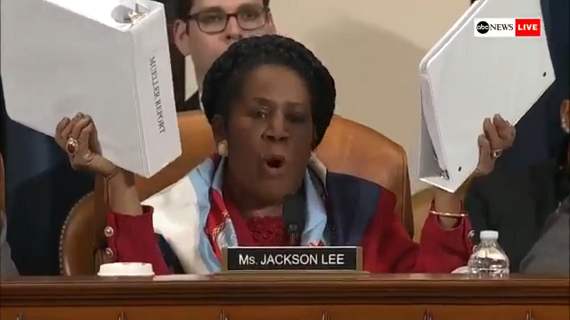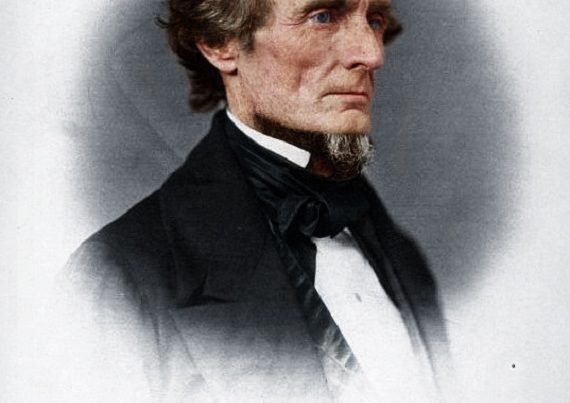
The impeachment hearings are good for humor if for nothing else. They bring out the so-called experts who demonstrate that they are anything but experts.
Law professor Pamela Karlan, Standford law professor, and Shelia Jackson Lee exchanged expertise on the Constitution and the Founders’ concerns prior to writing it. These two experts immediately opened their mouths and demonstrated that sometimes it is better to keep one’s mouth closed and let people think you are stupid than to open it and remove all doubt.
Shelia led off with a reference to “kings”:
“Kings, that (sic) the framers were afraid of, and the president’s conduct today.”
Actually, Ms Lee, the Founders were not afraid of Kings. Englishmen living on the Island under the shadow of the King favored him and even referred to him as “Farmer” George. Parliament ruled, and King Gorge III had no more totalitarian powers than Elizabeth II has today. The Founders did not FEAR kings. They feared bureaucrats sponsored by parliament. (Ring any bells, Ms. Lee?)
The omnipotence of the crown (the sovereignty of the people) was established in 1215 at Runnymeade by King John. In various amplifications and reissues, it was confirmed on fifty-four occasions at the time of the demise of Henry VI.
In 1689 the Glorious Revolution set forth the English Bill of Rights.
Then law professor Pamela Karlan as if to support Expert Lee said: “Kings could do no wrong because the King’s word was law.”
Generally, a misconstrued concept, “The King Can Do No Wrong,” does not mean that the king is infallible and/or evil. It means that the King could not be wrong or even think wrong. He represented the sovereignty and must be in perfection. Therefore, if the law was wrong it must be corrected because effectively the king (as sovereign for the people) must be righteous as to the law. The king’s word was not the law. The law was the law. The King could only be a mirror of virtuous law. This is hardly the kind of mistake an expert should make. Moreover, a high school student’s gaffe.
Then as if to add cleverness to her pretended expertise, Ms. Karlan said:
“The Constitution says there can be no titles of nobility, so while the president can name his son Barron, he cannot make him a baron,” she quipped, as an example differentiating between the presidency and a king.
Actually, at this point, someone might have asked her that as a law professor, had she attended law school. The Constitution says no such thing about titles.
It says that the United States cannot confer titles to anyone nor can anyone in the government receive such titles from foreign sources. It does not say “There can be no titles of nobility.” Now the hearing folks must wonder if she even attended high school.
It doesn’t seem to say much for law schools if they turn out the likes of Lee (she said the Constitution was 400 years old) and Karlan. It does draw a portrait of the cesspool of Washington, D.C. and the caliber of people that the taxpayers (trillions of dollars) pay to govern with their expertise.
In his excellent book of essays, From Union to Empire Dr. Clyde Wilson of South Carolina comments on the interpretation of the Constitution. A pithy comment that the 1315,256 lawyers in the United States might note. Particularly the experts.
I have often heard members of Congress and other public officers answer a constitutional question with the quip that they are not constitutional lawyers. Nonsense! Members of Congress, the President, and more importantly the people and officials of the states have just as much standing in interpreting the Constitution as any panel of lawyers or law professors, whether or not the latter has been appointed to the federal bench. The Founders never intended that the high political questions of constitutional interpretation should be at the mercy of lawyers’ tricks.
Long live the King
Short Live Washington’s Experts.






